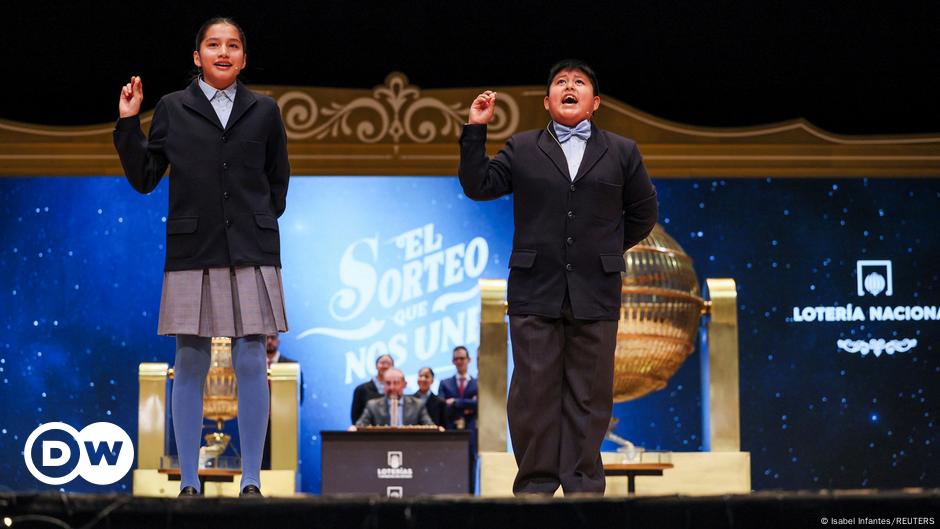Bussiness
UMW Business Students Win Kudos, Cash in Case Competition

One after the other, teams of University of Mary Washington students presented their case to a panel of executive judges.
Visuals depicting balance sheets, gross profit margins and financial analyses flashed onto the big screen in the Hurley Convergence Center’s Digital Auditorium, where five groups – 17 students in all – participated in the fall 2024 College of Business Case Competition.
The event showcased the concepts and skillsets business students collect throughout their time at UMW, with teams from the 400-level Strategic Management course coming together to analyze a business scenario and compete for bragging rights and a cash prize. Judges – Andrew Blate ’04 and Craig Schneibolk, co-owners of remodeling company Beautiful Home Services who established the endowed fund for the annual award money, along with product strategy consultant Travis Bjorklund ’02 – doled out a total of $4,000 to the three top-placing teams.
“You’re going to be in front of boards of directors and investors and advisors very, very soon,” Blate said to the students, most of them seniors. “You need to have a little taste of this kind of competitiveness.”
“The Reducers,” composed of UMW business students Cole Hudak, Sudhanshu Sarin, Jeremy Sanchez and Dwayne Clarke, took first place – and $2,500 – for their plan to rescue multi-use packaging company Loop and its refillable, reusable, returnable containers. The judges lauded their plans to launch a “Join the Loop” marketing campaign, secure government funding and partner with companies like Grubhub, and they deemed the group’s presentation the night’s “most ambitious.”
“The biggest lesson I learned is the importance of recycling. This exercise allowed me to recognize the magnitude of the problem,” said Clarke, a senior accounting major. “I really hope that the ideas we provided can help the industry improve their solutions for the community.”
“Eagle Impact,” made up of students Margarita Korsakava, Rachel Nelson, Connor Foster and Andrew McElwain, came in second, winning $1,000. And “EcoSisters,” including Alanah Cleare, Mia Fischl and Lauren Ballad, won $500 for their third-place finish.
“It was not only a signature business event for our career-launching experiences series, but also an amazing collaboration of successful alumni, dedicated advisory board members, and an engaged community of business students and faculty, said College of Business Dean Filiz Tabak. “I am so proud of our students; they showcased the best and the most brilliant in our college and symbolized the power of mentorship, innovation and networking.”

Judges (from left to right) Andrew Blate ’04, Travis Bjorklund ’02 and Craig Schneibolk listen to presentations by business students during the College of Business Case Competition. Blate and Schneibolk, who own Beautiful Home Solutions, established the endowed fund that covers the competition’s annual award money. Winners of the fall 2024 competition took home a total of $4,000 between them. Photo by Karen Pearlman.
Now happening twice a year, the competition takes classroom learning to the next level. UMW business professors select a scenario – in this situation, the fledgling Loop company and its battle with high operational costs – and ask students to research the case. The teams identify potential problems, come up with possible solutions and share their findings via video. Top performers become finalists should they choose to compete in front of a panel of judges, with 13 minutes to deliver their projects and five minutes for questions and answers.
“The experience taught us a lot about leveraging each other’s strengths and adapting quickly under pressure,” said McElwain, a senior majoring in international business. “Presenting and answering questions to the judges was a highlight; it allowed us to showcase all our efforts.”
Presenters are ranked on factors such as their understanding of the industry, recommendations for alternate strategies and ability to produce an action plan. The process allows students to integrate theory and practice while developing tolerance for ambiguity and incomplete data.
And it keeps getting better.
“This is the best one yet,” Schneibolk said. “Your professors are doing a great job at mentoring you and pointing you in the right direction.”





















